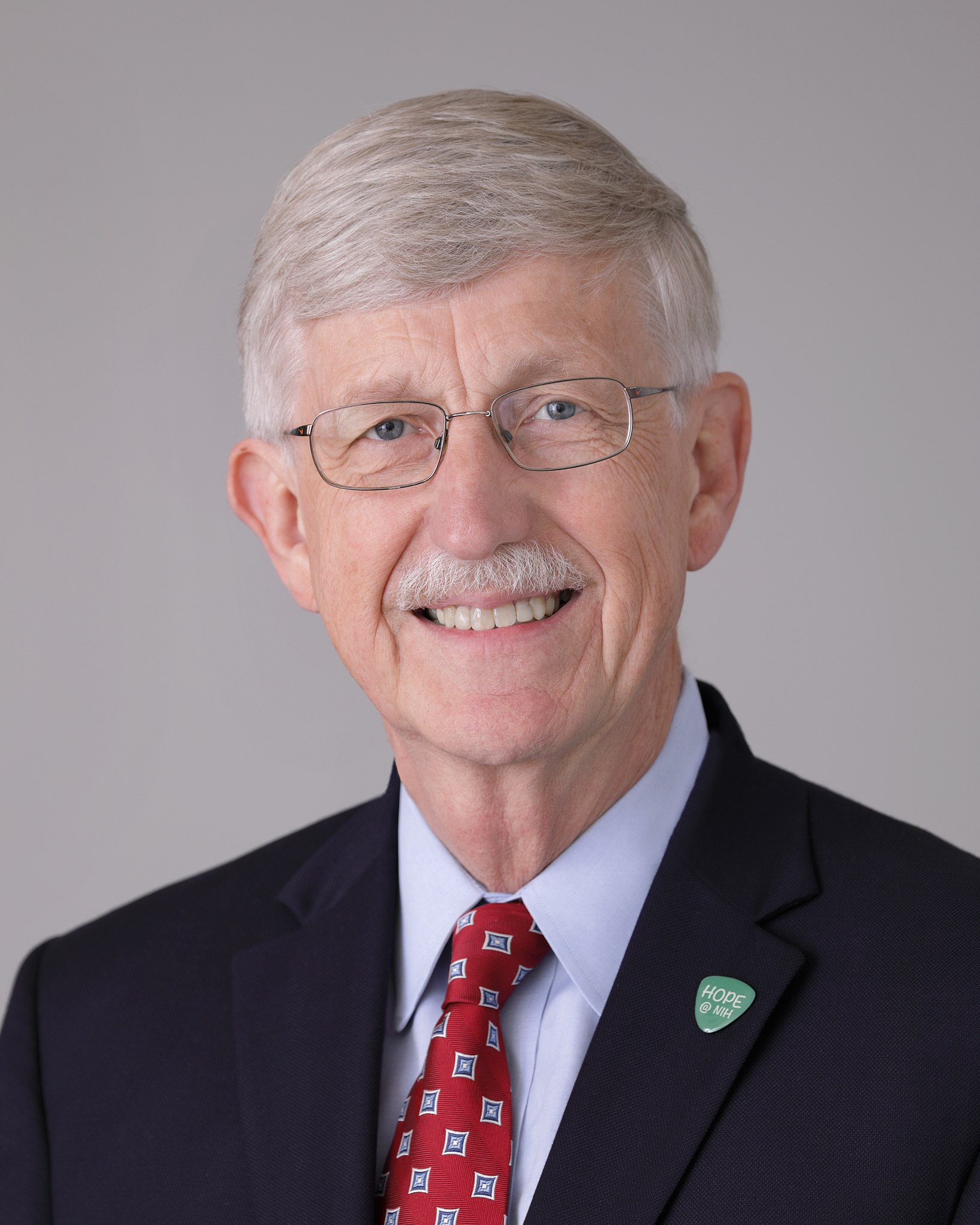Francis Collins Tribute
Francis Collins, National Institutes of Health (NIH) director for the past 12 years, announced that he will step down from his position at the end of this year. He holds the record for the longest term of service as head of the NIH and has received glowing compliments from all three presidents he served under (Obama, Trump, and Biden). In announcing his intent to leave his post Collins wrote, “It has been an incredible privilege to lead this great agency for more than a decade. . . . I am proud of all we’ve accomplished. I fundamentally believe, however, that no single person should serve in the position too long, and that it’s time to bring in a new scientist to lead the NIH into the future.”
Before his appointment as director of the NIH, Collins, a medical doctor and research geneticist, led the Human Genome Project. In graduate school Collins considered himself an atheist, but later he self-identified as agnostic, and still later, through his study of cosmology, he recognized, as I did, that God must exist. Then over the next few years, he converted to Christianity and openly testified of the fact. In 2007 he founded BioLogos, an organization intended to promote “the harmony of science and faith.”
I first met Collins a few months after he began his service as the NIH director. He invited me and a few other Reasons to Believe (RTB) scholars into his home for a friendly dialogue with several of the BioLogos scientists and theologians. I was immediately impressed by his warm hospitality and his opening comments. He said he was praying that the day’s dialogue would be the first of many opportunities for open, respectful, and gracious discussion of our differences on science and Scripture.
During the years that followed, I never saw Collins waver from treating those he engaged, including antagonists, with gentleness, respect, and charity. As much as we disagreed on various issues of biblical interpretation, there was no doubt that he passionately loved to study both science and the Bible. He expressed deep conviction that God communicated truthfully to us through both the book of Scripture and the book of nature.
Collins continued his encouragement of respectful dialogue between BioLogos and RTB scholars. He was keenly aware that the science-and-the-Bible discourse within the Christian community had become known for its acrimony. He shared my desire to show the world how Christians holding clearly different views on science and theology could nonetheless model John 13:35, which says, “By this everyone will know that you are my disciples, if you love one another.”
When Collins became the NIH director he had to step down from his position as president of BioLogos. At that time he handed the reins over to biologist Darrel Falk, who later transferred the leadership to astronomer Deborah Haarsma. Having participated with each in a number of public forums, I can affirm that they honor their ministry’s founder in their own gracious demeanor.
Thanks to Collins’ encouragement, interaction between the scholar teams at BioLogos and RTB have been sustained for over a decade. From these discussion came two books: Old-Earth or Evolutionary Creation: Discussing Origins with Reasons to Believe and BioLogos1 and Four Views on Creation, Evolution, and Intelligent Design.2
A few days after Collins’ retirement from NIH was announced, I wrote a brief congratulatory note on my Facebook and Twitter pages. Given the level of animosity that pervades our culture today, perhaps I shouldn’t have been stunned by the response, but I was. Among other slanderous remarks, some respondents called into question the man’s salvation and claimed that he opposed the gospel message.
Despite the fact that I disagree with Collins on several issues, including some matters of great significance to the Christian faith, I have no basis for doubt about his personal faith in Jesus Christ. I have heard him publicly testify. I have heard him preach the gospel. I have seen his Christlike character. I have seen his eagerness for people to know Christ as Creator, Lord, and Savior.
In 2 Corinthians 5:11–21 the apostle Paul declares that we who are disciples of Jesus Christ are his ambassadors. We are God’s diplomats, commissioned to assist people who are not yet followers of Christ and inviting them to make their peace with God. The world is watching us. People are observing how we treat one another when we sharply disagree on matters of importance. If they see us vilifying one another and “canceling” each other, how will they respond when we call them to make peace with God? If, by contrast, they see our genuine love for one another, especially when we disagree, won’t they be more likely to trust us to graciously, respectfully, and compassionately assist them in making their peace with God?
Endnotes
- Kenneth Keathley, J. B. Stump, and Joe Aguirre, eds., Old-Earth or Evolutionary Creation: Discussing Origins with Reasons To Believe and BioLogos (Downers Grove, IL: InterVarsity Press, 2017).
- Stanley N. Gundry, series editor; J. B. Stump, general editor, Four Views on Creation, Evolution, and Intelligent Design (Grand Rapids, MI: Zondervan, 2017).






